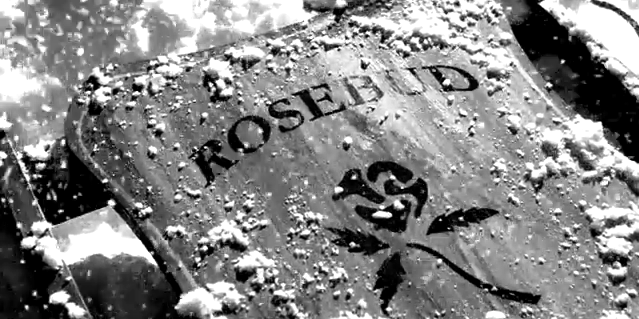Release Year: 1941
Director: Orson Welles
Cast: Orson Welles, William Alland, Ray Collins, Dorothy Comingore, Joseph Cotten.
Plot: An important business man, Charles Foster Kane, dies in Xanadú, his oriental style castle. His last word - Rosebud - generates enormous curiosity and leads a group of journalists to investigate his life in order to solve the mysterious enigma.
Review: Named several times as the best movie of all time, Citizen Kane was world reknown for its innovation in story telling structure. But what does this exactly mean?
Well, summing up, the film was praised for using three characters, each one connected to a part of Kane's life and, by flashbacks, explaining the story from the beginning to the end, that is, from the past to the present. Some may ask: that's all? That's all it takes to reach the 1st position in cinema rankings? Well, there are two things that must be added to the explanation. The first one is that we are at the beginning of the 40s. Hollywood has imposed the lineal story as a way to attrack audiences to the theatres, there's no need to complicate things. Welle's picture was a glowing star in the middle of the already golden age, showing us that other ways were possible.
The second one is how flawless the structure was. Even if now it's not that strange and new filmmakers have created more complex structures, the film is so well constructed that the story just flows through it without a single trouble. The timing, the sections; all is calculated to result in perfect harmony.


'Citizen Kane' had a revolutionary story-telling
And then there's the mystic enigma. "Rosebud". I admire how with a simple word they're able to catch the audience so much. That's the key of good movies; they give you reasons to love the movie even before you've ended watching them. As the film goes by and the performances consolidate with it, the mystery just rises and rises, rising the movie with it. It's infallible, reaching the end with the spectator biting his nails.
At the end, it's always very hard to meet the expectations, but 'Citizen Kane' surprisingly does. While I had accepted the theory that the enigma was a missing part in Kane's life, a piece that just didn't exist I was very surprised when I saw the name 'Rosebud' printed in his chilhood sled (suddenly understanding why he died while holding a snow globe). That had been missing, his childhood: money made him buy everybody and everybody's love; money spoiled him. All he ever wanted was to be a normal kid with his family and a sled to play when it snowed. That's the final trick; we're so focused on following the marks of a mystery left accidentally, the facts of the exterior persona, that we don't realize that it was his subconscious that left the hint; a key that could lead someone to see his buried cry for help, a cry lost in time as his sled was.

Film history most famous enigma was infact the lost chilhood of a spoiled, yet lonely, old man. A final scream to go back to the past

Film history most famous enigma was infact the lost chilhood of a spoiled, yet lonely, old man. A final scream to go back to the past
.jpg)
.jpg)


No hay comentarios:
Publicar un comentario